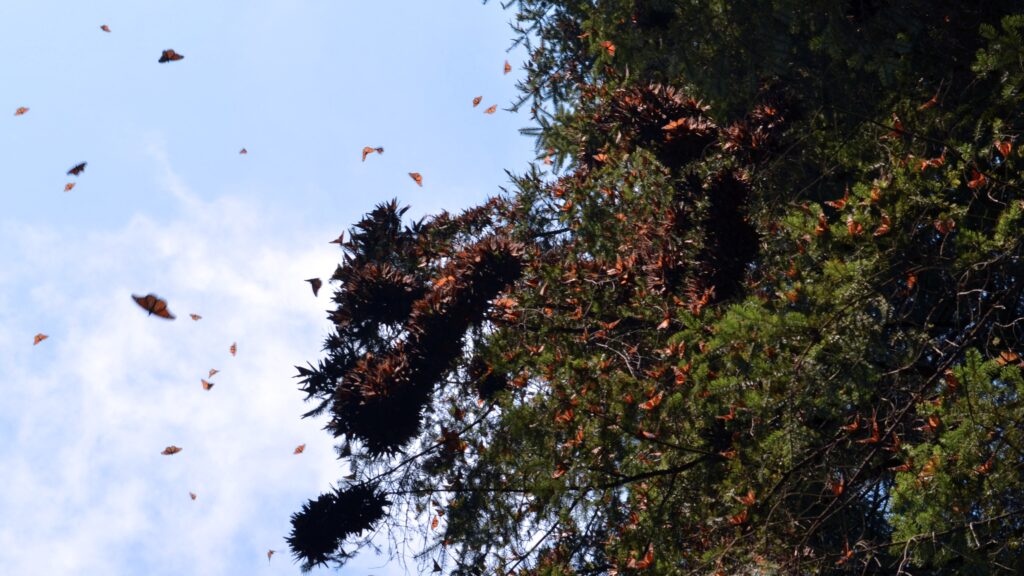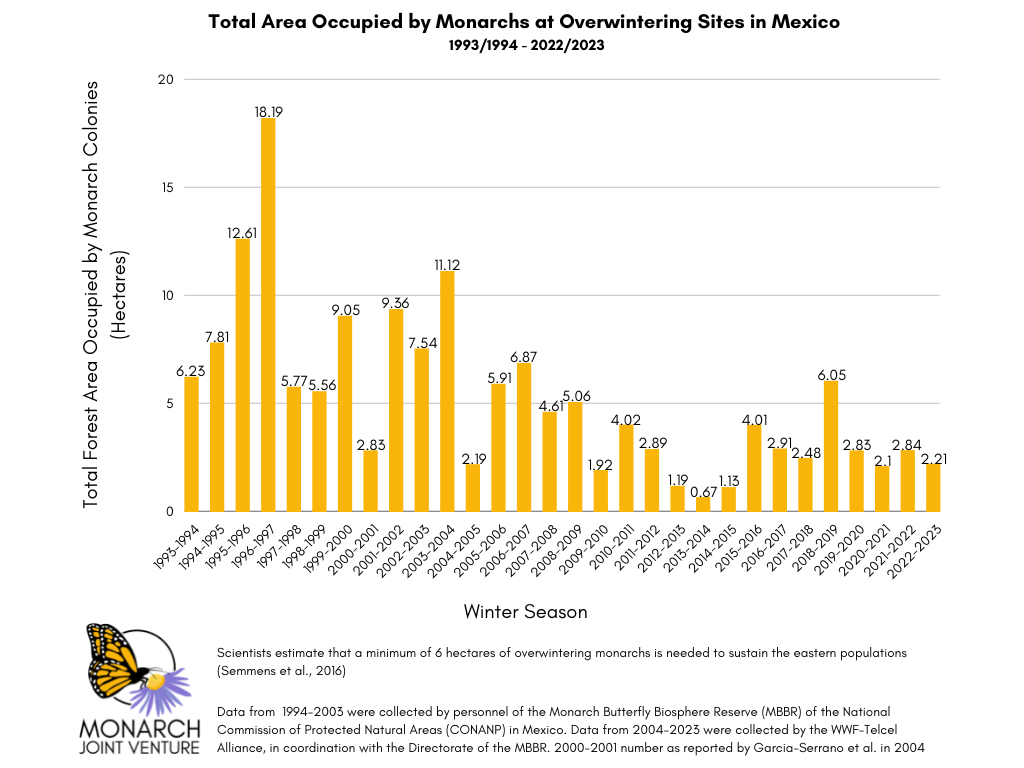
Eastern monarch populations saw a 22 percent decrease compared to last year, according to the annual survey released this week from World Wildlife Fund (WWF) Mexico. Monarch butterflies occupied 2.21 hectares, a drop from the 2.84 hectares they occupied last year. Because it is impossible to count each butterfly, the survey measures the area of forest the monarchs occupy each winter in the hibernation colonies, providing an indicator of their population status. It is estimated that six hectares of hibernating monarchs are required to maintain a sustainable eastern monarch population, more than double the population announced this week.

Farmers for Monarchs has noted previously about the “Goldilocks” conditions required to support the health and migration of the monarch. Monarch Watch, a nonprofit education, conservation, and research program based at the University of Kansas that focuses on the monarch butterfly, noted two specific events that may have contributed to low monarch numbers: droughts in Texas and late arrival at the overwintering sites.
Forest degradation is likely another factor that has contributed to the decline in monarch overwintering populations, according to a second report released this year by WWF-Mexico. The report, entitled Forest Degradation at the Core Zone of the Monarch Butterfly Biosphere Reserve, found that 145 acres of forest have been degraded, a major increase when compared to the 47 acres lost in the previous year. The report also notes that the Monarch Butterfly Biosphere Reserve is also home to 132 species of birds, 56 species of mammals, 432 species of vascular plants and 211 species of fungi.
The monarch migration is a remarkable and fragile cycle with any disruption throwing it out of balance. Increasing habitat is still the primary means of supporting and restoring the population. As the work of Farmers for Monarchs has shown, the agricultural community has a great opportunity to be a part of the solution. Please visit the Farmers for Monarchs State Resources page or call our Pollinator Habitat Help Desk at (337) 422-4828 or (337) HABITAT to get the information you need to establish habitat on your land.
